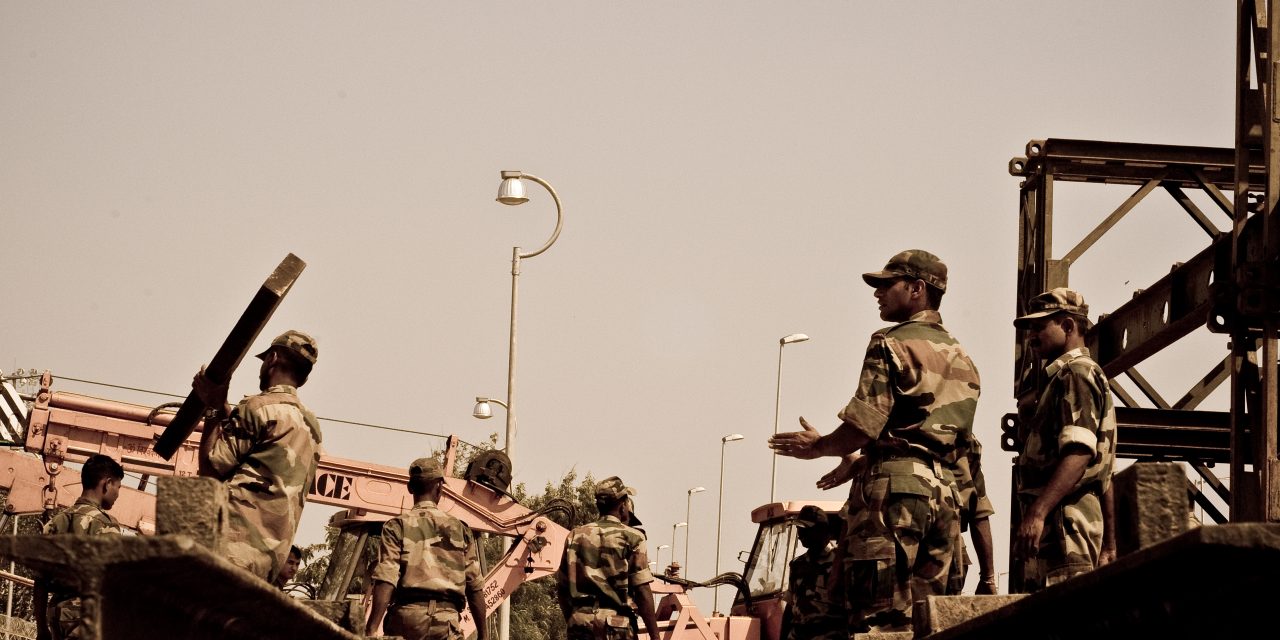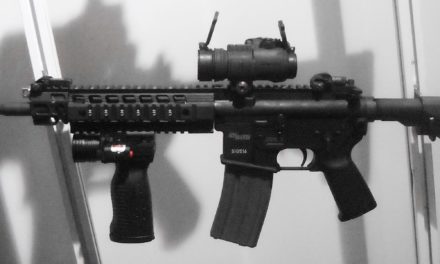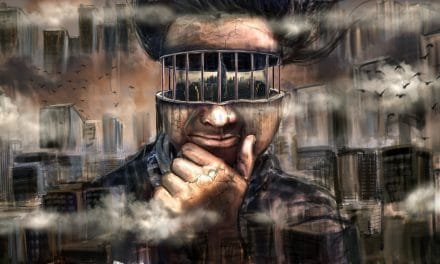Cambridge: How Jammu and Kashmir went from being the proverbial ‘heaven on earth’ before independence to the purgatory that it has become today may be a conundrum even for the most knowledgeable political pundits. In what could be seen as another log in this already-ravaging hellfire, terrorists targeted a convoy of Central Reserve Police Force (CRPF) Jawans in Pulwama on Thursday, leaving 46 dead in its wake. It was a suicide bomber from the militant group Jaish-e-Mohammad who had attacked the convoy in a suicide attack. He loaded ample amount of explosives in a Scorpio (car) and rammed it into the bus carrying the CRPF personnel. What remained thereafter was just a mangled heap of charred chassis, glass and human remains!
Among the brave Jawans killed, two were from West Bengal: Bablu Santra and Sudip Biswas. Bablu Santra was from Bauria village in Howrah district. At the age of 13, he lost his father. He struggled a lot but never gave up. He used to sell fish in the local market to provide support to his family. He completed his school education successfully and also undertook the responsibility of his four sisters. From a fish seller, he ultimately became a hawaldar (constable) in the CRPF. Sudip Biswas was the other brave Bengali soul who sacrificed his life for his country. He belonged to the Tehatta district of Nadia in West Bengal. He had a dream of joining army from his childhood and did end up joining the army after completing his schooling. After completing army training in Kerala, he was posted in Kashmir. He had recently visited his house during December (2018) and his family had begun arranging for his wedding. On Thursday, while talking to his family on a call around 3 PM, the call suddenly got disconnected. Later the army informed his father Sannyasi Biswas that Sudip had attained martyrdom in the ghastly attack in Pulwama. All the Jawans who were killed were returning from their vacations to their workplace to resume duty.
The spokesperson of the Jaish-e-Mohammad (JeM), the group that claimed responsibility for the attacks, identified the suicide bomber as Adil Ahmed Dar. The explosives in the Scorpio weighed around 100 kg! In an incident that took place on the Srinagar-Jammu highway in Pulwama district, Dar rammed his Scorpio into the bus at 3.15 PM. This attack turned out to be a bigger attack than the Uri attack on an Indian army camp. To remind our readers, it was after the Uri attack that Modi government initiated surgical attack on Pakistan based terror groups on Pakistan-Occupied Kashmir (PoK).
The Indian government directly accused Pakistan for supporting this heinous act. The external ministry also issued an unequivocal condemnation of this incident in its statement after the attack, saying,
The heinous and despicable act has been perpetrated by Jaish-e-Muhammed, a Pakistan-based and supported terrorist organisation proscribed by the United Nations and other countries. This terror group is led by international terrorist Masood Azhar, who has been given full freedom by the government of Pakistan to operate and expand his terror infrastructure in territories under control of Pakistan and to carry out attacks in India and elsewhere with impunity. The GOI is firmly and resolutely committed to take all necessary measures to safeguard national security. We are equally resolved to fight against the menace of terrorism. We demand that Pakistan stop supporting terrorist and terror groups operating from their territory and dismantle the infrastructure operated by terrorist outfits to launch attacks in other countries.
The Government of India condemned Pakistan for spreading terror and told Pakistan to refrain itself from the act of supporting & spreading terrorism. Indian government has appealed to the United Nations Security Council to put Jaish-e-Mohammad leader Masood Azhar (who was released after the infamous Kandahar hostage crisis in 1999) under counter terrorism sanctions.
Before moving on to the larger question of Jammu and Kashmir, I would like to take this occassion to mention a list of the martyred CRPF jawans and pay homage to their bravery and service to the nation.
- Head Constable Naseer Ahmad (Jammu and Kashmir)
- Constable Sukhjinder Singh (Punjab)
- Head Constable Jaimal Singh (Punjab)
- Constable Rohitash Lamba (Rajasthan)
- Constable Tilak Raj (Himachal Pradesh)
- Head Constable Vijay Soreng (Jharkhand)
- Constable Vasantha Kumar VV (Kerala)
- Constable Subramaniam G (Tamil Nadu)
- Constable Manoja Kumar Behera (Odisha)
- Constable GD Guru H (Karnataka)
- Head Constable Narayan Lal Gurjar (Rajasthan)
- Constable Mahesh Kumar (Uttar Pradesh)
- Constable Pradeep Kumar (Uttar Pradesh)
- Head Constable Hemraj Meena (Rajasthan)
- Head Constable PK Sahoo (Odisha)
- Constable Ramesh Yadav (Uttar Pradesh)
- Head Constable Sanjay Rajput (Maharashtra)
- Constable Koushal Kumar Rawat (Uttar Pradesh)
- Constable Pradeep Singh (Uttar Pradesh)
- Constable Shyam Babu (Uttar Pradesh)
- Constable Ajit Kumar Azad (Uttar Pradesh)
- Constable Maninder Singh Attri (Punjab)
- Head Constable Bablu Santra (West Bengal)
- Constable Ashvni Kumar Kaochi (Madhya Pradesh)
- Constable Rathod Nitin Shivaji (Maharashtra)
- Constable Bhagirath Singh (Rajasthan)
- Constable Virendra Singh (Uttarakhand)
- Head Constable Awadhesh Kumar Yadav (Uttar Pradesh)
- Constable Ratan Kumar Thakur (Bihar)
- Constable Pankaj Kumar Tripathi (Uttar Pradesh)
- Constable Jeet Ram (Rajasthan)
- Constable Amit Kumar (Uttar Pradesh)
- Constable Vijay Kr. Mourya (Uttar Pradesh)
- Constable Kulwinder Singh (Punjab)
- Head Constable Maneswar Bsumatari (Assam)
- Assistant Sub Inspector Mohan Lal (Uttarakhand)
- Head Constable Sanjay Kumar Sinha (Bihar)
- Head Constable Ram Vakeel (Uttar Pradesh)
- Constable Sudeep Biswas (West Bengal)
- Constable Sivachandran (Tamil Nadu)
They will always be remembered for their service to the nation.
The attack enraged the entire nation in a manner few other incidents have in recent times. From Toronto to London, from Delhi to Chennai, Indians across the globe rose in large numbers to mourn the loss of the jawans and call for strict, decisive action. Action against the militants. Action to make Pakistan take steps to demolish the Jaish-e-Mohammad presence within its territories. Action to encourage the Indian government to take the strongest possible steps to avenge this incident.
I personally had to face a lot of mixed reactions within the University of Cambridge, with some strongly supporting the call for action while others said that, according to them, this was a response of the frustrated and repressed Kashmiri masses who have had to fight for their survival. As much as I recognize human rights violations, wherever they may be, as a heinous crime, the Indian army and government have been taking every possible step to reduce the possibility of such cases and making the Kashmiri masses integral to the national discourse and narrative of India. Violence has been widespread in the state on both sides. A recent United Nations (UN) report, released in June 2018, highlighted the atrocities in Jammu and Kashmir on the local Kashmiri populace. According to this report, 145 individuals were killed by the Indian security forces and up to 20 people killed by the armed police. On the other hand, till date around 650 Kashmiri Pandits had been killed by armed groups, while according to ‘Roots in Kashmir’ – a Kashmiri Pandit group, over 700 members of the community were killed in 1989-90 alone! Children have been been victims of this violence on both sides: Pellet guns used were found to cause grave injuries to innocent children particularly young girls, while the armed insurgent groups continue to recruit children into their ranks, in a direct contravention of the UN programme for stopping the recruitment of child soldiers. One needs to see that the problem is more multi-faceted and nuanced than one may see it as.
The Modi government has been trying to engage with the people of the state, develop infrastructure and services, and reduce the conflict (with growing rumblings about the possible use of the Doval Doctrine, which could lead to irreparable damage to the relation between people of Jammu & Kashmir and the Union of India). On the engagement front, in 2016, the Narendra Modi government announced a Rs. 200 crore plan to engage Kashmiri youth with sports activities in a bid to keep them away from the spectre of `radicalization’. The village, district and state elections and democratic institutions are being reinforced and supported by the government agencies, to increase the legitimacy of the democratic process and increase engagement with the people of the state. On the infrastructure front, besides the inauguration of the longest road tunnel that connects Kashmir valley with Jammu by an all-weather route, the Modi government also launched the Kishanganga hydro power project, which will provide 13% free power to Jammu and Kashmir including 1% for local area development fund amounting to around Rs 133 crore per year. There have been other infrastructure building and services projects undertaken in the state, with the state government. On the defence front, due to the better coordination between Indian Army, Central Armed Police Forces and the Jammu & Kashmir Police, 257 terrorists were neutralised in 2018. Even after sustained efforts to bring peace to the Valley, the radical Islamization and separatist resurgence has been a crucial element in creating imbalance in the state. As much as development can be an antidote to this problem, the Indian government needs to focus on resolving the fundamental underlying political problem. It needs to engage with the people, with Pakistan, with the separatists, albeit from a respectable position. After the Pulwama attack, it needs to give a measured but strong and decisive response to the militants and Pakistan that drives home the point effectively and yet keeps space for dialogue on resolving the Kashmir problem. Unless the political problem is resolved, the state will remain simmering with violence.
Upon India’s independence in 1947, the Maharaja of Kashmir Hari Singh acceded the state to India. Jammu and Kashmir is an integral part of India. Period. The last Maharaja did mention about the need for a plebiscite eventually (though that seems unlikely since a pre-condition for that is withdrawal of armed forces by both countries) and the state today is connected to the Union (of India) via a special Article 370 that gives autonomy and special status to the state. What those seeking the abrogation of Article 370 do not understand often is that the Article is literally the only thing constitutionally keeping the state with India. Once removed and before it is renegotiated, there will be a phase when the state will be independent and possibly without the involvement of the Indian army in that phase. This can create wide-scale disturbance and vulnerability with the likes of China and Pakistan waiting in the wings to create further turmoil and possibly annex parts of the state. Pakistan has already brazenly handed over parts of PoK to China for the China Pakistan Economic Corridor (CPEC).
One needs other ways of dealing with this problem so that when such a situation arises, the people of Jammu and Kashmir themselves facilitate the joining of the state as a state like any other in the Union. This may just happen not just by dialogue across the board and consultation with various stakeholders, but also with changing the narrative in the state fundamentally. One often overlooks the rights and interests of the non-Muslim people in the state, be it the Dogras of Jammu, the ousted Kashmiri Pandits or the Buddhists of Ladakh. Their voices must be heard and empowered. We need to keep working on developing the state and trust with the people, along with cutting away at the roots of insurgency in the state. Not only this, steps like revoking the security of the Hurriyat leaders and the ‘Most Favoured Nation’ status from Pakistan have been positive and strong. I hear from some sources that the terrorist launch-pads in the state have been withdrawn from the border areas and relocated further inland so that a repeat of the surgical strikes by the Indian army is so far inland that it literally becomes a declaration of war against Pakistan.
As appealing as it may seem to be for those braying for blood after the attack, a war-like situation in the subcontinent will be absolutely devastating for both the countries. Pakistan is a nuclear state with a strong arsenal of nuclear missiles and a large army. Even the Cold Start doctrine of the Indian army may not give India enough leverage in a quick enough time to make Pakistan concede to demands, before the UN or China or other international players step in. Some say that some covert operations in support of the freedom movements of Baluchistan and Sindh by the Indian intelligence may have a role, albeit very little, in creating fissures and promoting separatist voices in the areas, which may lead to a destabilization of Pakistan. As much as this is in the domain of the uncertain for me, I personally do not see the destabilization of Pakistan in this manner as any good for the entire region. India recently denounced Pakistan at the International Court of Justice in The Hague, besides suspending bus service to Pakistan-Occupied Kashmir. This tactic of complete isolation of Pakistan by India may make them hear what the protesters in Toronto or London or Melbourne could not: `Stop lurching towards terror and rid your country of the elements of terrorism that still very clear thrive within its borders’! The days when India takes such an affront to its sovereignty lightly are over.
bollywood
boycott
indus
export duty
protest
The New India rises, strong!
(Header Picture Credits: Jaskirat Singh Bawa; available here)

















Thanks for the terrific post
It works quite well for me
I like this page, useful stuff on here : D.